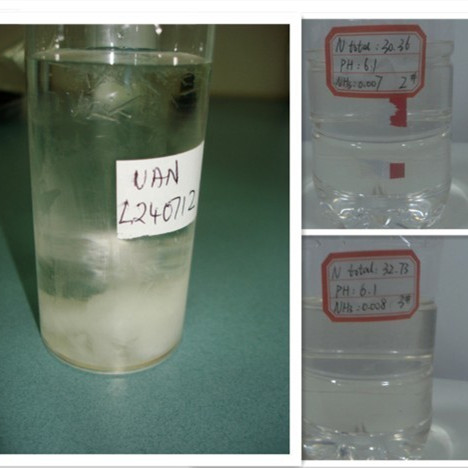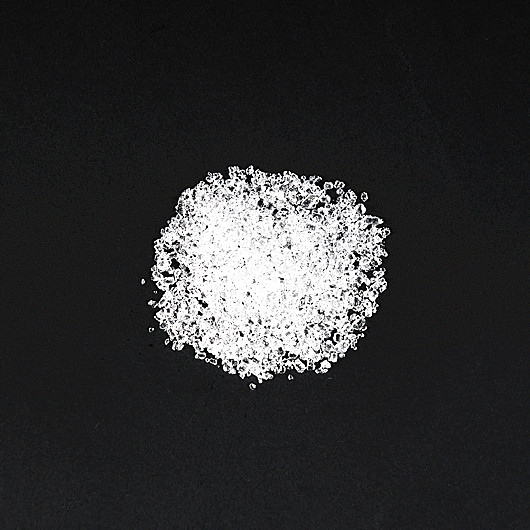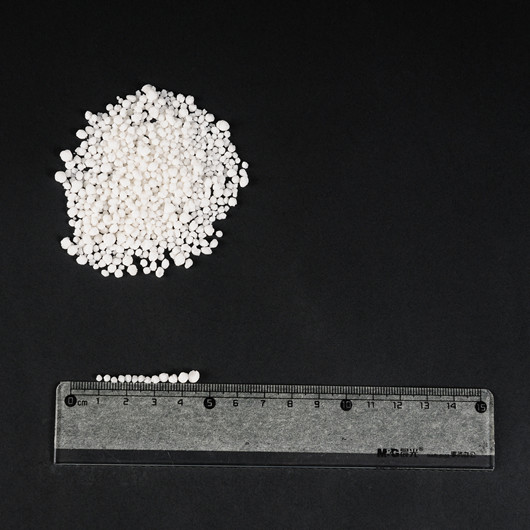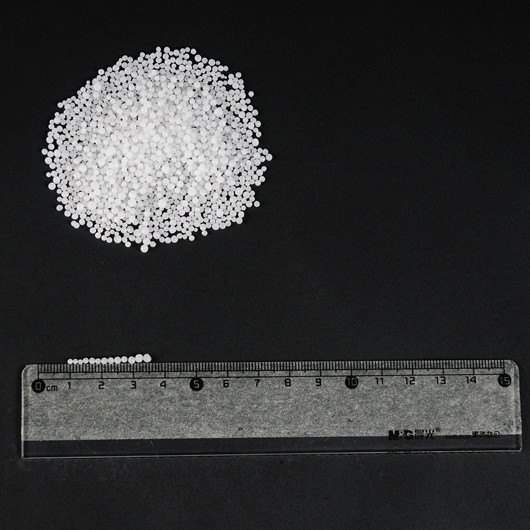Introduction to Calcium Nitrate Fertilizer
Calcium nitrate fertilizer is a cornerstone in modern agriculture, indispensable in nurturing plants to optimal health and productivity across diverse cultivation systems. Its dual benefit of supplying both calcium and nitrogen, two fundamental macronutrients, underscores its importance in fostering robust plant growth and development. Calcium, a vital structural element, fortifies plant cell walls, creating a strong foundation that protects against external threats and supports overall plant integrity. Conversely, nitrogen, the catalyst for growth, spurs the production of chlorophyll, enabling plants to harness sunlight efficiently and produce lush, vibrant foliage that fuels their continued expansion.
In the realm of hydroponics, where plants are nurtured in carefully controlled, nutrient-rich water solutions, calcium nitrate fertilizer shines as a particularly valuable asset. Its water-soluble nature ensures swift and complete absorption by plant roots, eliminating the need for extended breakdown processes and ensuring that nutrients are readily available when and where plants need them most. This rapid uptake promotes efficient nutrient utilization, maximizing growth rates and yield potential. Moreover, by precisely controlling the nutrient content and ratios in hydroponic systems, farmers and gardeners can tailor the fertilizer program to the specific needs of their crops, optimizing growth conditions and enhancing overall crop quality.
In soil-based cultivation, calcium nitrate fertilizer likewise plays a pivotal role in enhancing soil fertility and crop performance. Its addition to the soil helps to replenish depleted nutrient levels, providing a sustained source of both calcium and nitrogen that supports robust plant growth throughout the growing season. Furthermore, calcium nitrate's solubility and rapid uptake by plants contribute to reduced nutrient leaching and runoff, minimizing the potential for environmental contamination and promoting more sustainable agricultural practices. By maintaining optimal nutrient levels in the soil, this fertilizer also encourages the development of healthy soil microbiology, which further supports plant health and productivity.
Beyond its direct benefits to plant growth, calcium nitrate fertilizer also contributes to the economic viability of agricultural operations. By promoting faster growth rates, increased yields, and improved crop quality, it helps farmers and gardeners to maximize their returns on investment. Moreover, its versatility and ease of use make it an attractive choice for a wide range of crops and cultivation systems, ensuring that it remains a staple in modern agricultural practices for years to come.
Key Benefits of Using Calcium Nitrate in Hydroponics
One of the primary advantages of using calcium nitrate in hydroponics is its ability to enhance nutrient availability. As a highly soluble fertilizer, calcium nitrate dissolves quickly in water, making it readily available for plant uptake. This helps to prevent nutrient lockout, a common issue in hydroponic systems where nutrients can become bound to other ions in the solution, making them unavailable to plants.
In addition to improved nutrient availability, calcium nitrate also promotes healthy plant growth and resistance to disease. Calcium is essential for the formation of strong cell walls, which provide structural support to plants and help them to withstand environmental stresses. By strengthening cell walls, calcium nitrate helps to improve plant resilience and reduce the risk of disease and pest infestations.
Furthermore, calcium nitrate allows for precise nutrient control in hydroponic systems. Because it is a water-soluble fertilizer, it can be easily mixed and adjusted to meet the specific nutrient needs of different crops. This enables farmers and gardeners to maintain optimal pH levels and nutrient concentrations in their hydroponic systems, ensuring that plants receive the ideal growing conditions.
Advantages of Calcium Nitrate in Soil Cultivation
While calcium nitrate is particularly well-suited for hydroponic systems, it also offers numerous benefits in soil cultivation. One of the most significant advantages is its ability to boost soil fertility. Calcium nitrate adds valuable nutrients to the soil, stimulating microbial activity and promoting healthy soil structure. This helps to create a vibrant and productive growing environment that supports healthy plant growth.
In addition to boosting soil fertility, calcium nitrate also enhances crop quality and yield. By providing plants with a balanced source of calcium and nitrogen, this fertilizer promotes uniform growth and development, resulting in healthier and more productive crops. Whether you're growing fruits, vegetables, or ornamental plants, calcium nitrate can help you achieve your gardening goals.
From an environmental perspective, calcium nitrate is also a sustainable choice for soil cultivation. Its slow-release formula helps to reduce nutrient leaching and runoff, minimizing the risk of water pollution and nutrient loss. This makes calcium nitrate a compatible option for organic farming practices, where a focus on environmental sustainability is paramount.
Correct Usage & Application Guidelines
To get the most out of your 25kg calcium nitrate fertilizer, it's important to follow correct usage and application guidelines. The first step is to determine your dosage requirements, which will depend on factors such as crop type, soil or hydroponic system characteristics, and desired yield goals. Start with recommended starting points for your specific crops and adjust as needed based on plant response.
When applying calcium nitrate, be sure to mix it thoroughly with water or your hydroponic nutrient solution. For soil cultivation, apply the fertilizer evenly over the soil surface and water in well to ensure even distribution. In hydroponic systems, add the appropriate amount of calcium nitrate to your nutrient solution and mix thoroughly before feeding to plants.
It's also important to monitor plant response and adjust your applications as needed. Keep an eye on plant growth and health, and make adjustments to your fertilizer dosage or application schedule if necessary. Regular monitoring will help you to maintain optimal nutrient levels and promote healthy plant growth.
Safety Precautions & Storage Instructions
When handling and storing calcium nitrate fertilizer, it's important to follow safety precautions to protect yourself and the environment. Always wear protective clothing and eyewear when handling the fertilizer, and ensure that you have proper ventilation in your workspace. Avoid contact with skin, eyes, or clothing, and wash thoroughly with soap and water if contact occurs.
To store your 25kg calcium nitrate fertilizer safely, keep it in a cool, dry place out of direct sunlight. Avoid exposure to moisture or heat, as this can cause the fertilizer to degrade or become less effective. Keep the fertilizer in its original packaging or transfer it to a clean, airtight container made of a material that is resistant to chemicals and moisture, such as HDPE (High-Density Polyethylene) or polypropylene. Ensure the container is properly labeled with the name of the fertilizer, its weight, and any precautions or warnings for handling and storage.
Store the container on a stable shelf or rack, preferably off the ground to prevent flooding or accidental spills. Keep it away from children and pets to prevent accidental ingestion or contact with skin and eyes.
Regularly check the container for any signs of leaks, damage, or moisture accumulation. If you notice any issues, immediately transfer the fertilizer to a new, undamaged container.
It's also important to keep the fertilizer away from flammable materials and sources of ignition, as calcium nitrate can be combustible in certain conditions. Avoid storing it near heat-generating appliances, such as furnaces or water heaters.
Lastly, remember to follow the recommended shelf life guidelines provided by the manufacturer. If the fertilizer has been stored for an extended period, inspect it carefully before use to ensure it is still in good condition and effective. If in doubt, consult the manufacturer or a qualified agronomist for advice.
FAQ
1. What are the main components and characteristics of Calcium Nitrate Fertilizer?
Answer:
Main Components: Calcium Nitrate Fertilizer primarily consists of calcium nitrate (Ca(NO₃)₂), which combines two essential nutrients: calcium (Ca) and nitrogen (N). Typically, fertilizer-grade calcium nitrate contains approximately 19% calcium and 20% nitrogen (specific content may vary by product).
Characteristics: Calcium nitrate is highly soluble in water, making it particularly effective in hydroponic systems where plant roots can directly absorb nutrients from the aqueous solution. In soil cultivation, it is also readily absorbed by the soil, enhancing soil fertility.
2. What is the role of Calcium Nitrate Fertilizer in hydroponic systems?
Answer:
Calcium Nitrate Fertilizer serves as a primary source of nutrition in hydroponic systems, providing essential calcium and nitrogen elements to plants. Calcium is a vital component of plant cell walls, helping maintain cellular structural stability, while nitrogen promotes plant growth and leaf greenness.
The solubility of calcium nitrate allows plant roots to rapidly absorb these nutrients, supporting healthy plant growth and development.
3. How do I correctly use 25kg of Calcium Nitrate Fertilizer in soil cultivation?
Answer:
Application Rate: The specific application rate depends on soil conditions, crop type, and target yield. Generally, follow product instructions or recommendations from agricultural experts to determine the appropriate rate.
Application Method: Calcium nitrate fertilizer can be applied through broadcast, furrow, or hole application. After broadcasting, lightly till the soil to mix the fertilizer evenly.
Timing: Ideally, apply fertilizer during periods of vigorous crop growth or peak nutrient demand to ensure maximum nutrient utilization by the plants.
To provide a more specific example with numbers for using 25kg of Calcium Nitrate Fertilizer in soil cultivation, let's consider a hypothetical scenario:
Example Scenario
Crop Type: Tomatoes
Soil Conditions: Moderately fertile, pH 6.5-7.0, well-drained
Target Yield: High-yielding variety, aiming for 10,000 kg of tomatoes per hectare
Product Instructions: The product instructions recommend applying 100 kg of Calcium Nitrate Fertilizer per hectare during the early growth stages and another 50 kg per hectare during the fruiting stage.
Application Rate Calculation
Assuming you have a plot of land that is 0.25 hectares (a common size for home gardens or small farms), you would calculate the application rate as follows:
Early Growth Stage:
Recommended rate per hectare: 100 kg
Your plot size: 0.25 hectares
Amount to apply: 100 kg/hectare×0.25 hectares=25 kg
Since you have 25kg of Calcium Nitrate Fertilizer, this would be the entire amount you would use during the early growth stage for your 0.25-hectare plot.
Fruiting Stage:
Recommended rate per hectare: 50 kg
Your plot size: 0.25 hectares
Amount to apply: 50 kg/hectare×0.25 hectares=12.5 kg
However, in this case, you only have 25kg available, so you would use the entire 25kg during the early growth stage and consider supplementing with another source of nitrogen or calcium during the fruiting stage if necessary.
Application Method
Broadcast Application: Spread the 25kg of Calcium Nitrate Fertilizer evenly over the soil surface of your 0.25-hectare plot.
Tilling: After broadcasting, use a tiller or cultivator to lightly mix the fertilizer into the top 5-10 cm of soil. This helps ensure even distribution and promotes better nutrient availability to the plant roots.
Timing
Early Growth Stage: Apply the fertilizer during the seedling or transplant stage, when the plants are actively growing and need nutrients to establish a strong root system and foliage.
Fruiting Stage (if not using all 25kg at once): Apply additional fertilizer (if available) when the plants begin to set fruit and enter their peak nutrient demand period. This typically occurs several weeks after transplanting or seedling emergence.
Remember, these are general guidelines, and you should always consult local agricultural experts or follow specific recommendations for your crop and soil conditions.
4. What precautions should I take when mixing Calcium Nitrate Fertilizer with other fertilizers?
Answer:
Avoid direct mixing with phosphate fertilizers, as they may react to form insoluble calcium phosphate precipitates, reducing fertilizer efficacy.
Conduct small-scale tests before mixing to confirm that the combined fertilizers do not negatively impact plants.
5. How should Calcium Nitrate Fertilizer be stored?
Answer:
Store in a dry, cool, well-ventilated area, away from direct sunlight and high temperatures.
Keep containers tightly sealed to prevent moisture ingress, which can cause fertilizer clumping or degradation.
Store away from fire sources and flammable materials, as calcium nitrate is flammable and explosive.
Please note that the above information is for reference only. Always follow product instructions and recommendations from agricultural experts when using Calcium Nitrate Fertilizer to ensure healthy plant growth and optimal yield.



